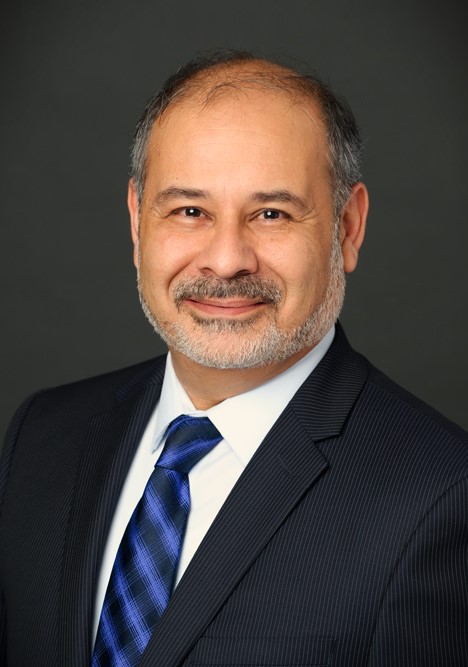
by Khodadad “Ko” Sharif || 20 February 2024 ||
Does California Rules of Professional Conduct, Rule 1.15, entitled “Safekeeping Funds and Property of Clients and Other Persons,” govern government agencies that are holding funds for third parties in a civil forfeiture proceeding? More specifically, should cash received or held in civil forfeiture proceedings by the Office of the District Attorney be deposited in one or more identifiable bank accounts labeled “Trust Account?”
California law authorizes the forfeiture of “proceeds traceable to such an exchange” of an illegal controlled substance. Cal. Health & Safety Code § 11470(f). Cal. Health & Safety Code § 11470(f) provides that “the following are subject to forfeiture”:
All moneys, negotiable instruments, securities, or other things of value furnished or intended to be furnished by any person in exchange for a controlled substance, all proceeds traceable to such an exchange, and all moneys, negotiable instruments, or securities used or intended to be used to facilitate any violation of Section 11351, 11351.5, 11352, 11355, 11359, 11360, 11378, 11378.5, 11379, 11379.5, 11379.6, 11380, 11382, or 11383 of this code, or Section 182 of the Penal Code, or a felony violation of Section 11366.8 of this code, or a felony violation insofar as the offense involves manufacture, sale, possession for sale, offer for sale, or offer to manufacture, or conspiracy to commit at least one of those offenses, if the exchange, violation, or other conduct which is the basis for the forfeiture occurred within five years of the seizure of the property, or the filing of a petition under this chapter, or the issuance of an order of forfeiture of the property, whichever comes first.
Although California law authorizes the forfeiture of “proceeds traceable to such an exchange” of an illegal controlled substance, tracing is required to prove that the source of funds or property that is forfeited is from illicit narcotics activity and not from a legitimate source. People v. $9,632.50, 64 Cal. App. 4th 163, 168-169 (1998). During the forfeiture proceedings and until a judicial order is entered and the case is disposed of, the government must maintain and preserve the funds.
California Health and Safety Code section 11469(h) states,“[u]nless otherwise provided by law, forfeiture proceeds shall be maintained in a separate fund or account subject to appropriate accounting controls and annual financial audits of all deposits and expenditures.” Although the traditional rule of statutory construction is not applicable to the CRPC rules, it is persuasive that “[a] traditional rule of statutory construction is that, absent express words to the contrary, governmental agencies are not included within the general words of a statute.” Wells v. One2One Learning Foundation, 39 Cal.4th 1164, 1192 (2006). We now must turn our attention to the language of the governing rule itself.
California Rules of Professional Conduct, Rule 1.15(a) states “[a]ll funds received or held by a lawyer or law firm for the benefit of a client, or other person to whom the lawyer owes a contractual, statutory, or other legal duty, including advances for fees, costs and expenses, shall be deposited in one or more identifiable bank accounts labeled ‘Trust Account’ or words of similar import, maintained in the State of California, or, with written consent of the client, in any other jurisdiction where there is a substantial relationship between the client or the client’s business and the other jurisdiction.” In reviewing CRPC, Rule 1.0.1. for word or phrase defined, we find that government lawyers are not excluded from CRPC Rule 1.15. CRPC Rule 1.0.1(c), defines a lawyer or law firm as “”Firm” or “law firm” means a law partnership; a professional law corporation; a lawyer acting as a sole proprietorship; an association authorized to practice law; or lawyers employed in a legal services organization or in the legal department, division or office of a corporation, of a government organization, or of another organization.” Notably, this expansive definition includes, without exception, government lawyers.
It appears that government agencies, including the Office of the District Attorney, are governed by CRPC 1.15, and imposed upon them are the additional obligations of Health and Safety Code section 11469(i), which states: “[s]eizing agencies shall ensure that seized property is protected and its value preserved.” Further, “inherent in Health & Safety Code, § 11469‘s requirement that the value of property be ‘preserved’ is that seized currency be deposited into an interest bearing account, rather than languishing in cash and losing value over time.” People v. $12,601.33, 209 Cal. App.4th 121, 129 (2012).
Thus, not only must all forfeiture funds be maintained as mandated by Health & Safety Code section 11469, but necessarily must be maintained as required by the CPRC, Rule 1.15.
-This article was originally published for the San Diego County Bar Association Blawg. It has been reposted with their permission.
More Questions?
If you have questions , please check out the rest of our blog for more information.
The content of this blog is provided for informational purposes only, and we are not offering any legal opinions. If you wish to consult with Sharif | Faust, please contact us to set up a consultation.This blog does not create an attorney-client relationship with Sharif | Faust. To retain Sharif | Faust, you must sign a written attorney-client agreement. Remember, the results in any case depend upon the specific facts in that case. It is important that you consult with a lawyer you trust. By reading this blog, you agree to our Terms of Use.
